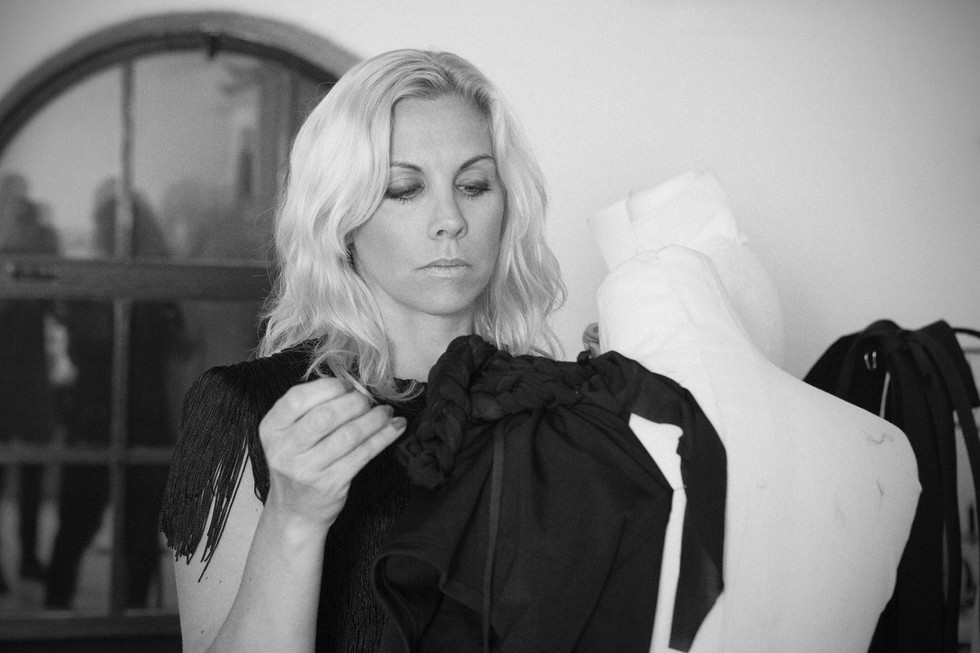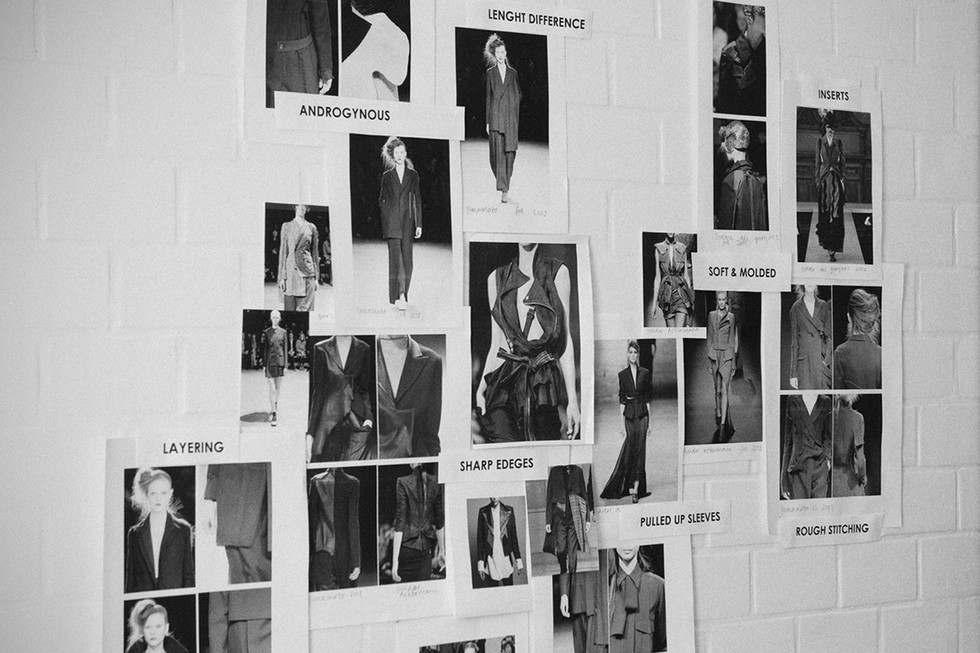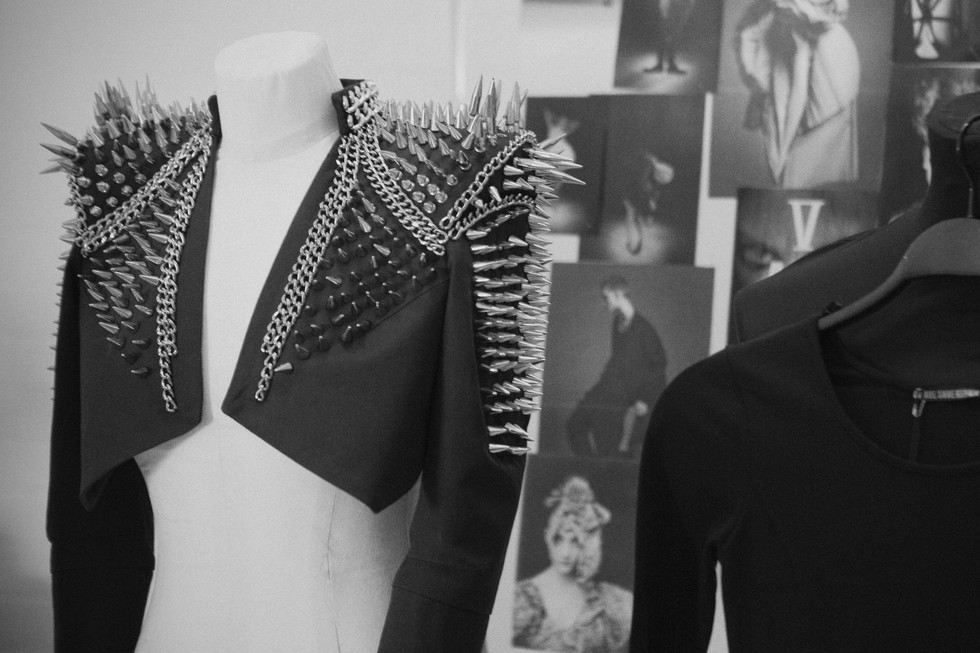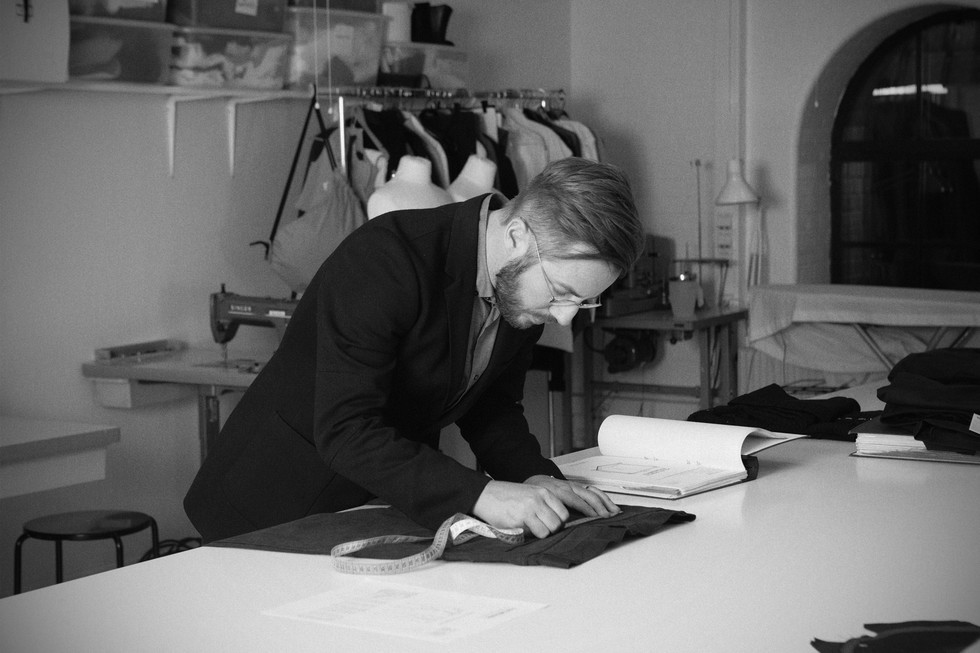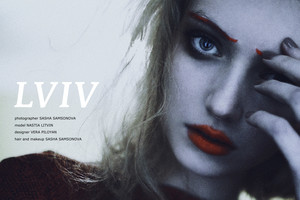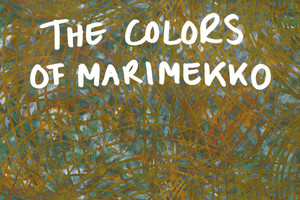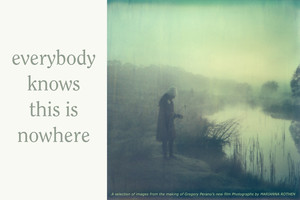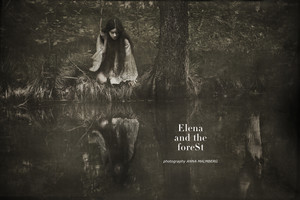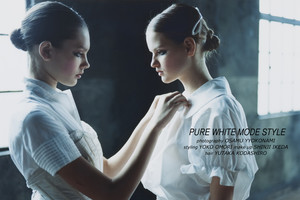V Ave Shoe Repair
Written by Mari FlorerV Ave Shoe Repair – A Small Wish to Exist
Astrid Olsson and Lee Cotter are the designers behind the Swedish brand: V Ave Shoe Repair. As a former dance couple they competed in Latin American dance competitions around the world. They created their own costumes and soon they got orders from other artists. “We liked working with conceptual designs to change the perception of what a couple or performance could be. The theatrical of it interested us. ”When their dancing careers ended an opportunity to switch careers came up. Astrid began design studies at the University of Borås. It was at that time that the idea to start a brand of their own, grew stronger. – It started with a small wish to exist, Astrid says.
Astrid and Lee come from different backgrounds. Astrid grew up in a suburb called Täby, fifteen minutes by train from Stockholm. She began dancing when she was a young girl. She was also interested in crafts, tailoring and sewing from a young age. Lee grew up in London with his mum and dad. His father is English, his mother is Swedish. His parents went different ways when he was eight years old and he moved with his mother to Sundsvall (population 50 000), a town in the middle of Sweden. At first he played “masculine” sports like football and ice-hockey. His mother told him that girls like boys who know how to dance. He grew to like it and that was the beginning of his career as a dancer.
Why did you quit dancing?
Astrid When you’re getting closer to twenty-six, your knees and feet stop working as well. And there is a lot of travelling.
Very, very stressful! You have to practice two to three hours a day, even on weekends. This was the second way out. I’m very happy that we changed careers because now we can design things other than glittering dance costumes. Now we’re free to do what we want.
When did you two become a couple outside of dancing?
Lee The dance world is very special. It’s really about match making; length, width, type and how advanced you are in a specific style. We realized that we indeed were a very good match. And then we fell in love. The rest is history.
Was V Ave Shoe Repair successful from the start?
Astrid Yes, we set up the label just when the economy was rapidly moving upwards and people were looking for new inspiration. When we ended up at Barneys and Selfridges and those sorts of places I still travelled around helping out with selling at fashion fairs. We didn’t really understand what was happening. I guess it was just life coming to our aid.
Lee Yes, it was a mixture of having done some interesting stuff and fortunately we made them at the right time. A lot of brands have created very beautiful things and fail because the timing is poor.
Tell me, what do you think is more challenging; designing clothes for men or for women?
Lee There are different choices. With women’s clothing, you can experiment more than you can on a men’s collection. Still, we are trying to stretch the framework a bit when we create the menswear as well.
Does this framework put limits to your creativity?
Astrid Sometimes yes. In the past, we’ve designed a lot of things that confused more than it opened up, I think. The problem is, when you start pushing the boundaries of male fashion it’s easy to lose the masculinity. You can only build in certain places on the body: the shoulder and the waist. But you can’t build too much on these places because it ends up more like a scene costume if you do and that’s a little boring.
Lee We have done some advanced things. But I like to keep myself inside the established framework as well. I’m not just pro madness. I like to make a suit. I find that the magic of small movements is inspiring. We’ve always talked about challenging the traditional but at the same time protecting it - always being progressive but at the same never changing too much. There’s a fine line when it comes to fashion.
Astrid Yes, that’s the hardest part as a designer - never to tire of yourself. You have a tendency to run away from your fans.
How long does it take in your studio from an idea to a finished garment?
Astrid If you completely start from scratch, it takes about three weeks. And of course it depends on the how advanced it is.
And a ready to wear garment?
Astrid …about a week. From drawing until it is finished. But then the garment is not complete. Everything is rough cut. The details aren’t right. They do those things much better in the factory. It takes about 8 weeks till we get a first sample delivered from the manufacturers.
Are you satisfied when you finally get hold of the product?
Astrid You must keep your cool. Sometimes, it’s not funny at all opening these boxes when they arrive - And at the same time it’s exciting.
Lee For example, on a sample: the seams can be off, the details all wrong and the fabric different from the one you ordered. Usually, they take the fabric that’s available at the time - to get the shape. You’ve got to have a lot of fantasy to imagine what the final product will be like. There’s a lot of anguish before it’s all set.
Where are you manufacturing?
Astrid Portugal, Turkey and China.
Lee We are trying to stand up for the small producers. We make our shoes in a Portuguese factory where there’re three people working - Really made by hand.
Astrid The factory is just as small as this room (about 20 square meters). It’s really really tiny! We are very committed to the ethical aspect of manufacturing. We are only using the best raw materials. We are buying the leather from Italy and it is always premium. We use it for our finest products to bring longevity.
Lee We are trying to work in an ecological way. For example we are coloring most of the leather with vegetable tanning. I don’t think our customers are aware of that, we never really shout it out.
Astrid The knitwear we produce in a small factory in China. We worked a lot with Italian factories before, but it’s no longer possible, I think.
Lee Maybe, I need to explain. People have some strange ideas about China still. We use a small factory in China that is much more expensive than the Italians are. And the Chinese are extremely talented and they’re doing amazing things. They get paid well and have reasonable working conditions. But, we are still buying our wool from Italy. China quality is not yet up to standards when it comes to raw materials.
Astrid We plan to move some of our production to Estonia and Latvia because we want it to be closer to home. Unfortunately, we can’t manufacture here in Sweden because there are no textile mills here any longer.
Lee If that were possible it would have been fantastic to produce knitwear, suits and shirts here - items that are pretty simple to produce. You don’t need very advanced techniques for that.
At the presentation of SS13 you told the audience that people need more fairytales. What did you mean by that?
Oh, I think we need it all the time. The whole world is very realistic right now. I think people should dress up a little more. It’s not very often you see dressed up people going to theatre or the opera. Today we are designing clothes that work all day. People just change their shoes when they are going out for the night. The wardrobe has become a bit one-sided. When was the last time you went to a party where people wore indoor shoes? Everyone walks around in their damn socks.
So you think that people should change their clothes more often?
Astrid Yes, and I think it would be nice with a little more magic. Life should be more like in a movie, I think.
And Lee, you said your inspiration was – if I caught you right – a working class guy who comes to the big city with dreams of creating a new life but at the same time as he’s still very connected to his past…
Lee There’s a bit of me in there too, even if it is fiction. I feel that I want to do things I could not do where I grew up. I didn’t know what I wanted to do, but I knew it was not possible in Sundsvall where I lived. Not that I disliked being there, I had a nice childhood and all that. It was when I was dancing and travelled the world I realized that maybe I wanted to do something that was bigger. And then I felt a strong urge to move to the big city.
What are your plans for the future?
Astrid We are waiting for the autumn collection, the clothes are really beautiful. Designing the fall line is more fun than other seasons because you have more fabric to work with. And the material differs. A lot of wool! Otherwise, we are also planning a relocation of the office.
Lee We are moving our studio from Södermalm to Vasastan close to our own apartment. We are planning the interior right now and looking forward to see it come true.
What’s the next inspiration or concept?
Astrid It’s more festive emphasized both the male and female collection - more luxurious details. I think it will be a little bit smarter – with increased focus on tailoring. But it’s kind of vague at the moment and I have not yet formulated my thoughts. Right now it is only small disconnected pieces and small papers on the walls.
Do you have your own style icons?
Lee That is an extremely tricky question. A few years ago, we would’ve answered Annie Lennox. But then we didn’t mean her clothes. We like her because she is beautiful and exudes strength. She can be both male and female. She looks great in a suit as well as in a dress. But I have to say we are struggling with this thing and I have to be honest: We have received comments that we appear to be elitist. That is saddening to hear, because as I said before I am a working class guy from Sundsvall. I’m no elitist. It’s the last thing I am. It’s just that I’m very ambitious.
So you have an understanding that people think you’re elitist?
Astrid Yes, I understand exactly what they mean.
Lee And that’s why it becomes difficult to answer your question. If I were say: Giacometti who was handsome when he walked around in his studio in the sixties. It becomes like too much… I find it hard to name someone that others can relate to.
Are you affected by the economic crisis?
Lee What has posed problems for us is that we have customers that don’t pay. It’s about millions of Swedish kronor. It has been a tremendous challenge for us. And for the whole fashion industry, I say. It really is not just us.
Astrid It comes right down to the thread level. It’s difficult to find the fabrics you are searching for. No one can afford to produce fabric. Often when we find a nice fabric they don’t have the color we want, or it’s sold out.
Lee It’s hard when our partners have problems. Of course, we are affected when one of our suppliers goes bankrupt. Suddenly, in a panic, we must find a new one.
Astrid We are nurturing the relationships with the most important suppliers. You have to know them really well. We have to travel and be on the phone a lot more. And we had to be more flexible. We need to customize the design according to what is on the market. All of a sudden we have to rethink completely.
Maybe it will be an exciting challenge?
Lee When we started out, sometimes out of necessity, we put the same fabrics in both the jacket, and pants or in a dress. We have always had that thinking.


